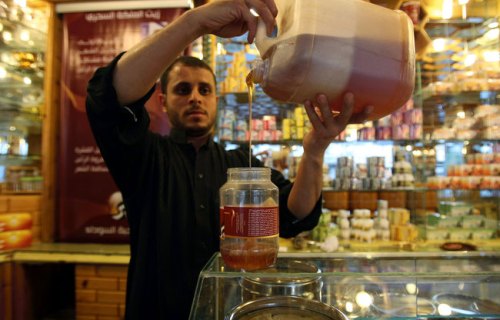
Mohamed Huwais/AFP/via Al-Shorfa/http://al-shorfa.com/en_GB/articles/meii/features/2012/12/03/feature-02
Highlights:
Conflict in Yemen: Abyan’s Darkest Hour
Amnesty International — 4 December 2012
This report, based mainly on a fact-finding visit to Yemen in June-July 2012, documents violations committed by Ansar Al-Shari’a when cities and towns in Abyan were under their control and during the subsequent armed conflict. These violations included recklessly exposing civilians to harm during attacks; killing captured soldiers; abducting civilians, some of whom have never been seen again; and obstructing medical treatment for wounded people. The report also shows how government forces used disproportionate force during the conflict. Amnesty international is calling on the Yemeni authorities to hold to account those responsible for all these abuses and to ensure that the victims receive full redress.
A long road ahead for Yemeni women
Open Democracy — 3 December 2012
Hence, appointing three female ministers was considered “appropriate” representation for some, and even hailed as a success by others. The important technical committee, set up by President Hadi to define the scope of the upcoming National Dialogue, included individuals with high caliber and street credibility, but women initially represented only 20 per cent. Then in September 2012, President Hadi issued another decree adding six new male members to the technical committee, which shifted the gender balance even further and decreased the percentage of women to 16 percent. Given these negative indicators, women are naturally frustrated about their marginalization and worry about the upcoming national dialogue. To alleviate some of these fears the technical committee recently published a detailed document on the Rules and procedures of the six-month National Dialogue conference which emphasizes that women will be present in all committees.
Yemen’s Democratic Revolution, One Year Later
The Atlantic — 29 November 2012
The infighting, combined with weak leadership on the part of the president and prime minister, has led paralysis. The top-tier posts in the ministries were selected based on what or who they represented, not based on any technocratic skill or knowledge, further compounding their inability to get anything done. Most are looking to advance their parties’ interests, thwart gains by their opponents, or cover up any wrongdoing during Saleh’s reign. Given the immense challenges that Yemen faces in social, humanitarian, and economic spheres, it can hardly afford this level of incompetency and inefficiency. More dynamic leadership from President Hadi and Prime Minister Mohammed Basindwa is desperately needed. Continue reading
